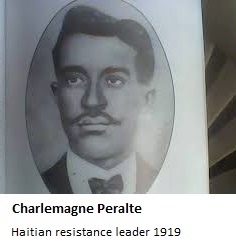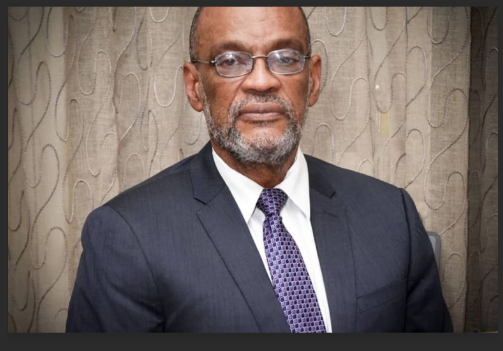Ardain Isma
CSMS Magazine
As anticipated, Haitian Prime Minister Ariel Henry announced his resignation in a video released early Tuesday, stating his intention to step down once a transitional government is established. He refrained from specifying the composition of this interim executive body, acknowledging his lack of legitimacy. Henry assumed the role of Prime Minister under questionable circumstances, following the assassination of President Jovenel Moise, facilitated by external actors including the United States, France, and Canada. Initially portrayed as a temporary appointment, Henry’s prolonged tenure defied Article 136 of the Haitian constitution, which delineates the process of presidential election and grants the President the authority to nominate a Prime Minister to form a government.
Article 136 emphasizes the executive branch’s significance in Haitian governance, detailing the roles of the President and Prime Minister in government formation. However, those wielding influence in Haitian politics demonstrate scant regard for the nation, its people, or its constitution. They arrogate to themselves the right to dictate governance without consulting the Haitian people, perpetuating a cycle of disempowerment and dependency. The recent crisis exemplifies this, as ousted Prime Minister Henry announced his resignation following a CARICOM-mediated meeting in Jamaica, where decisions were made without substantive Haitian participation.
CARICOM, led by Guyana’s President Irfaan Ali, announced a transition plan without genuine Haitian input, undermining Haitian sovereignty while upholding a continuum of external control. US Secretary of State Antony Blinken’s presence at the meeting further underscored international interference. This intervention is not new; CARICOM has historically facilitated regimes aligned with US interests, disregarding Haitian democratic aspirations. At the end of the meeting, Antony Blinken announced a 300-million-dollar aid package to Kenya as that African country has agreed to send a one-thousand police force to Haiti to help quell street violence. The proposed deployment of Kenyan police further symbolizes Haiti’s subjugation, eroding its hard-won dignity. In addition, the impending appointment of another handpicked Prime Minister highlights the disregard for Haiti and the erosion of its sovereignty.
This situation would undoubtedly dismay Haiti’s founding father, Jean-Jacques Dessalines, who fought tirelessly for his country’s liberation from colonial oppression. Western media’s portrayal of Haiti’s struggles as merely the result of criminal violence obfuscates the deeper issues and perpetuates a narrative of international saviorism. By framing Haiti’s challenges solely through the lens of violence, the media overlooks the broader socio-political context and maintains a storyline of hopelessness, reinforcing the notion that Haiti can only be saved through external intervention.
The danger of foreign interference
Foreign interference in a sovereign country is fundamentally wrong due to several key reasons, primarily revolving around the principles of self-determination, sovereignty, and respect for international law.
Firstly, every nation has the inherent right to self-determination, which includes the ability to choose its own political system, make its own decisions, and determine its own future without external coercion or influence. Interference from foreign entities undermines this right by imposing outside agendas, manipulating local politics, and subverting the will of the people. This can lead to the erosion of democracy and the imposition of regimes that do not reflect the genuine desires or interests of the population. Haiti is the classic case.
Secondly, sovereignty is a foundational principle of the international system, affirming the independence and autonomy of states to govern their own affairs without interference from external actors. When foreign powers intervene in the internal affairs of another country, they violate this principle, destabilizing the global order and setting dangerous precedents that could justify further interventions elsewhere. Such actions can breed resentment, conflict, and undermine the legitimacy of both the interfering state and the government it supports. The contemporary history of Haiti is a clear example.
Moreover, foreign interference often exacerbates existing tensions and conflicts within the targeted country—in this case, it is Haiti—fueling internal divisions, and perpetuating instability. By taking sides in internal disputes or backing certain factions, external actors can prolong conflicts, deepen societal rifts, and hinder efforts towards peaceful resolution and reconciliation. This not only prolongs the suffering of the affected population but also risks entangling additional countries in the conflict, leading to broader regional instability and potential escalation.

What took place in Jamaica on Monday undermines the principles of international law and norms governing the Haitian state, including respect for its territorial integrity and non-intervention in its internal affairs. The sad part of this unattainable reality is that the non-Haitians who decide for the people of Haiti always find collaborators from within, those like Jean-Baptiste Conzé who betrayed Charlemagne Masséna Péralte who led the resistance movement against US military occupation of Haiti (1915-1934).
How can Haiti break free from this cycle of despair and stagnation? The answer lies in the emergence of a genuine coalition composed of patriotic Haitians committed to leading their country towards a brighter future—a group willing to confront the challenges ahead with the same courage and determination as our ancestors did in 1804. Haiti’s illustrious history must not fade into obscurity but serve as a beacon of inspiration for generations to come. The legacy of Haiti’s independence has played a pivotal role in the development of Pan-Africanism and Pan-Caribbeanism, reminding the world of its contributions to the pursuit of freedom and equality.
Members of CARICOM who claim to assist Haiti while undermining its sovereignty must be reminded that their actions are morally and ethically reprehensible. By disregarding the principles of self-determination and international law, they deny Haitians the right to shape their own destiny. Instead of perpetuating Haiti’s humiliation under the guise of aid, they should resist external pressures and uphold principles of mutual respect, cooperation, and dialogue. Only by respecting Haiti’s autonomy and addressing its concerns can they genuinely contribute to the nation’s quest for sociopolitical freedom, economic prosperity, peace, and stability.
Also see: Also see: Unrest in Haiti: Prime Minister Ariel Henry’s Refusal to Step Down Amidst Escalating Violence
Haiti Falls deeper into chaos as Prime Minister Hariel Henry is trapped abroad
Note: Ardain Isma is the Chief-Editor of CSMS Magazine. He is the author of several books, including Midnight at Noon, Bittersweet Memories of Last Spring, and Last Spring was Bittersweet. You can order these books by clicking on the links above.


